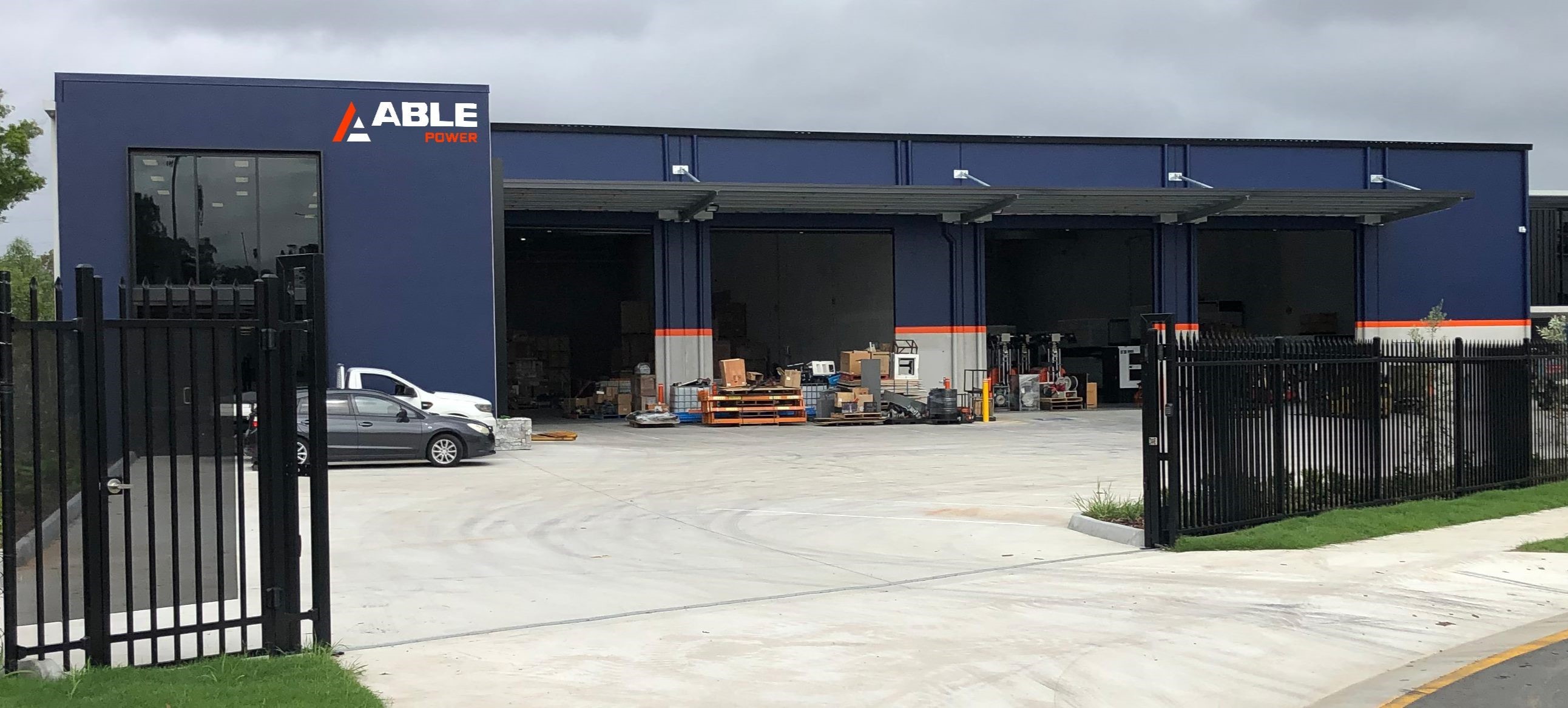Able Sales Locations

ABLE SALES(Melbourne)
Monday-Friday: 8am-5pm
Saturday: closed
Unit 5 / 11 Industrial Avenue,
Thomastown VIC 3074
(03) 9302 3602
LOCAL CALL 1300 735 902

ABLE SALES(Brisbane)
Monday-Friday: 8am-5pm
Saturday: closed
Unit 1 / 8 Prosperity Place,
Park Ridge QLD 4125
(07) 3272 9001
LOCAL CALL 1300 735 840

ABLE SALES(Perth)
Monday-Friday: 8am-5pm
Saturday: 8am-12pm
Unit 3 / 41 Tate Street,
Bentley WA 6102
(08) 9358 2299
LOCAL CALL 1300 793 001
Recent posts
Diesel Generator Backup Power for Farms
Electricity outages: are they unavoidable?
Australia is a huge country with vast distances between major cities and regional towns. The farther you venture from population centres the more potential there is for an unreliable electricity connection. The problem is exacerbated during major weather events which can leave remote communities and farms isolated for days on end. Modern agricultural and farm systems are energy hungry, and a reliable backup power supply during outages is essential in many situations.
The solution: generate your own electricity
Electricity use on farms is all pervasive: the household, pumping water for livestock and crops, power tools and equipment, freezers, shearing sheds and more. Without a backup generator, losses during power outages can be enormous. Every farm has its own power requirements according to size and land use, and diesel generators are built to suit every purpose. For many farmers, owning a backup generator makes good sense, however, purchasing the appropriate generator for your individual needs can seem confusing.
Diesel power for every situation
Diesel Generators range in size from 600 watt models that can be easily carried, to huge systems mounted on trailers big enough to power a country fair. So how do you make the right choice?
Considerations include:
- The generators wattage capacity
- Noise in proximity to the home
- Does it come with enough power plug outlets?
- How many hours of operation will it provide on a full tank of diesel?
The size of the standby generator you choose is dependent on your power requirements. The table below is typical of household power needs, but can also be used as a guideline for equipment requiring greater power. By working out your Total Electrical Load you can then determine the load you require at any given time.
Choose a diesel generator that suits your power needs
Some power ratings are expressed in WATTS (kW), and some in KVA (kVA). To convert kW to kVA, divide Watts by 0.8. To convert kVA to kW, multiply kVA x 0.8
Example:
2000 Watts = 2.5 kVA
4800 Watts = 6 kVA
A generator providing up to 7kVA will be suitable for most household applications including appliances, lighting, power tools rated up to 3400 watt, and even a 1hp submersible pump. Diesel generators are ideally suited for larger applications also, such as manufacturing enterprises, freezing and refrigeration units, and shearing sheds. For example, A 10 kVA generator supplied by Villiers will power a large workshop, building site, dairy or shearing shed where a wool press is used. Diesel engines are renowned for their long life and low maintenance costs. Farms with industrial generators can continue working efficiently during power outages.
For large operations, the investment in a suitably powerful diesel generator will be rewarded many times over by avoiding losses caused by power outages that result in spoiled produce, the inability to provide water to livestock, and accumulated expenses related to idle staff or employees.
Maximise profits with a diesel generator
It's important to purchase a generator that suits your work and lifestyle. A generator with too small a power capacity will overload. On the other hand, a large generator may be providing much more power than you require, adding to running and maintenance costs. Australian manufacturers and distributors of diesel generators are familiar with the needs of farmers. If in doubt about your requirements, speak to your local diesel generator distributor.
Any questions about a backup diesel generator for your needs, please give us a call on 1300 793 001.
.




